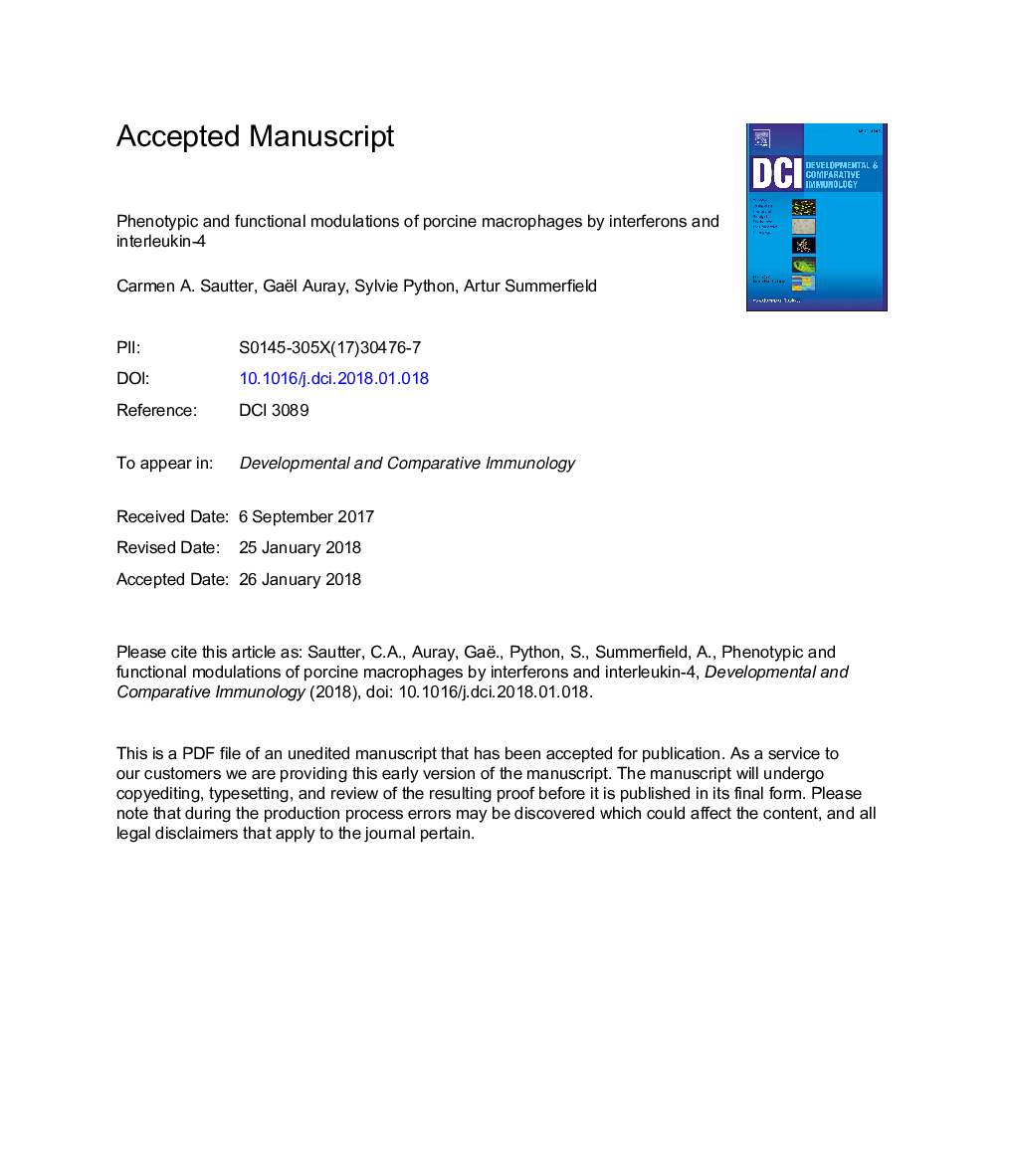| Article ID | Journal | Published Year | Pages | File Type |
|---|---|---|---|---|
| 8497720 | Developmental & Comparative Immunology | 2018 | 39 Pages |
Abstract
Considering that macrophage functions are strongly impacted by the local tissue environment and the type of immune response, the aim of this study was to carefully set the methodological baseline for phenotype and functions of polarized porcine monocyte-derived macrophages. To this end, macrophages were generated in autologous serum alone or with colony-stimulating factor (CSF)-1 or CSF-2, and subsequently polarized with interferon (IFN)γ, interleukin-4 or IFNβ. IFNγ promoted expression of MHC class I, MHC class II, CD11a, and CD40 as well as LPS-induced IL-6 and IL-12. A hallmark of interleukin-4 was Arginase 1 and CD203a upregulation, without abrogating pro-inflammatory cytokine production. IFNβ induced CD169, MHC class I, CD40, CD80/86, but suppressed IL-6, IL-12 and tumor-necrosis-factor secretion. CSF-2 alone altered macrophage differentiation and promoted an IFNγ-like polarization. Altogether, the results provide a comprehensive overview of porcine macrophage polarization, and demonstrate commonalities with other species as well as peculiarities of the pig.
Keywords
Related Topics
Life Sciences
Biochemistry, Genetics and Molecular Biology
Developmental Biology
Authors
Carmen A. Sautter, Gaël Auray, Sylvie Python, Matthias Liniger, Artur Summerfield,
